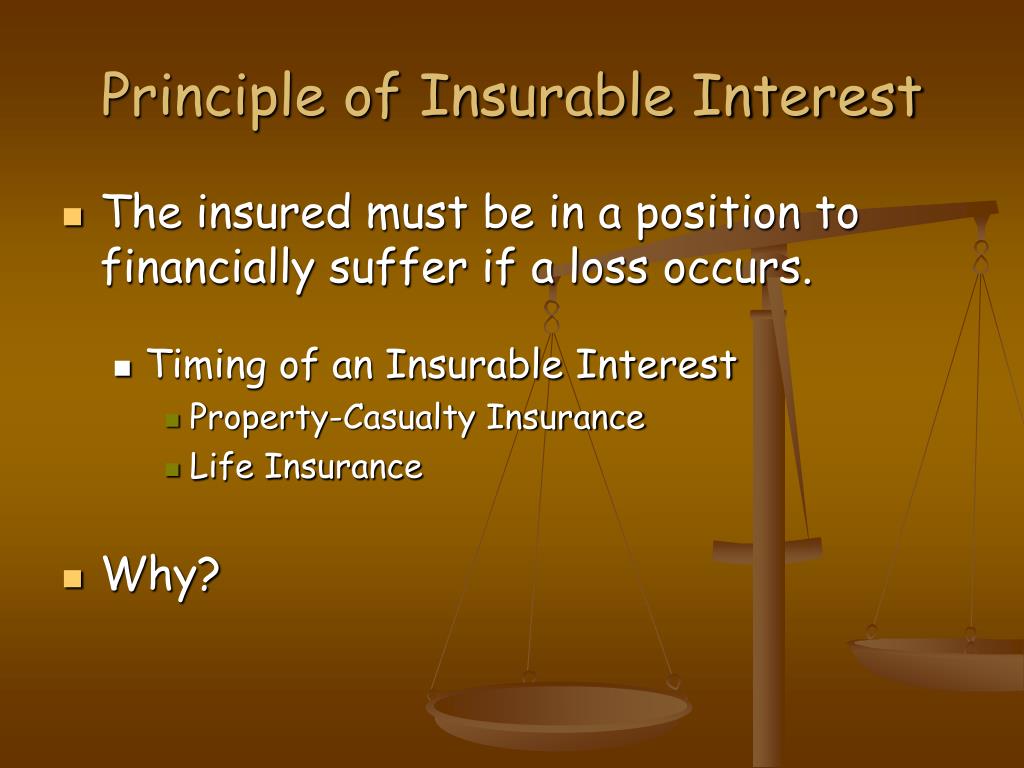Insurable Interest
Insurable interest is a legal concept that refers to the financial stake an individual or entity has in a property or subject matter. It is a fundamental requirement for obtaining insurance coverage, as it establishes the right of the insured to recover damages in the event of a loss.
To have an insurable interest, an individual or entity must have a legal or equitable interest in the property or subject matter. This can include ownership, possession, or a contractual right. The insurable interest must also be of a pecuniary nature, meaning that the individual or entity must stand to suffer a financial loss if the property or subject matter is damaged or destroyed.
Legal Requirements for Insurable Interest
The legal requirements for insurable interest vary depending on the type of contract and the jurisdiction in which it is entered into. However, there are some general principles that apply in most cases:
- Ownership: The owner of a property or subject matter has an insurable interest in it.
- Possession: A person who has possession of a property or subject matter, even if they do not own it, may have an insurable interest in it.
- Contractual rights: A person who has a contractual right to a property or subject matter may have an insurable interest in it.
- Financial interest: A person who has a financial interest in a property or subject matter, even if they do not own it or possess it, may have an insurable interest in it.
Examples of Insurable Interest in Different Types of Contracts
Insurable interest can arise in a variety of different types of contracts, including:
- Property insurance: The owner of a property has an insurable interest in the property.
- Life insurance: A person who has a financial interest in the life of another person has an insurable interest in that person’s life.
- Disability insurance: A person who has a financial interest in their own ability to work has an insurable interest in their own ability to work.
- Business interruption insurance: A business owner has an insurable interest in the continued operation of their business.
Insurable Interest as a Component of Contract Elements
Insurable interest plays a pivotal role in establishing a valid insurance contract. It represents the legal right or financial stake that an individual or entity has in the subject matter of the insurance policy. Without insurable interest, the contract is deemed void and unenforceable.
The concept of insurable interest serves several legal purposes. Firstly, it prevents individuals from obtaining insurance policies on property or assets in which they have no financial stake. This helps to mitigate the risk of fraudulent claims and ensures that insurance is used for its intended purpose: to protect individuals and businesses from financial losses. Secondly, insurable interest establishes the extent of the insured’s financial responsibility in the event of a loss. The amount of coverage an individual can obtain is typically limited to the value of their insurable interest in the subject matter.
Insurable interest can affect contract performance in various ways. For example, if an insured individual loses their insurable interest in the property or asset covered by the policy, the contract may become void. This can occur in situations such as the sale or transfer of ownership. Additionally, if an insured individual fails to disclose their insurable interest in the subject matter at the time of entering into the contract, the insurer may have grounds to deny coverage or void the policy altogether.
To establish insurable interest, the individual or entity must have a financial stake in the subject matter of the insurance policy. This stake can be based on ownership, possession, or a contractual obligation. For example, a homeowner has an insurable interest in their home, a business owner has an insurable interest in their inventory, and a lender has an insurable interest in the property securing their loan.
Exceptions to the Insurable Interest Requirement
Insurable interest is generally required for a valid insurance contract. However, there are certain exceptions to this rule.
Legal Basis for Exceptions
The legal basis for these exceptions is based on public policy and equitable considerations. In some cases, it is deemed necessary to allow insurance coverage even if the insured does not have a direct insurable interest in the property or event being insured.
Examples of Exceptions
Examples of when insurable interest is not required include:
- Subrogation: When an insurer pays a claim to an insured, the insurer becomes subrogated to the insured’s rights against the third party who caused the loss. The insurer does not need to have an insurable interest in the property or event at the time the insurance contract is entered into.
- Reinsurance: Reinsurance is a contract in which one insurer (the reinsurer) agrees to indemnify another insurer (the ceding insurer) for a portion of the risk assumed by the ceding insurer. The reinsurer does not need to have an insurable interest in the property or event being insured.
- Assignment: An insurance policy may be assigned to a third party, even if the assignee does not have an insurable interest in the property or event being insured. This is typically done when the property is sold or transferred.
Legal Remedies for Breach of Insurable Interest
Breach of insurable interest occurs when an individual or entity acquires an insurance policy without having a sufficient financial stake in the insured property. This can result in the policy being void or unenforceable. Legal remedies are available to address such breaches, ensuring that the rights of all parties involved are protected.
There are several types of legal remedies that may be sought in cases of breach of insurable interest. These include:
Damages
Damages are a monetary award that compensates the injured party for losses suffered as a result of the breach. In cases of insurable interest breach, damages may include:
– The amount of premiums paid on the insurance policy
– The value of the property that was insured
– Any other expenses incurred due to the breach
Rescission
Rescission is a legal remedy that allows the court to cancel the insurance policy retroactively. This means that the policy is treated as if it never existed, and all premiums paid are returned to the policyholder.
Injunction
An injunction is a court order that prohibits the insurance company from taking certain actions, such as denying coverage or refusing to pay a claim. This remedy is typically used to prevent further harm to the injured party while the case is pending.
Specific Performance
Specific performance is a legal remedy that requires the insurance company to fulfill its obligations under the insurance policy. This remedy is typically used when the insured property has been damaged or destroyed and the insurance company has refused to pay the claim.
Examples of Breaches of Insurable Interest
There are several common examples of situations where insurable interest has been breached. These include:
– A person who takes out a life insurance policy on someone else’s life without having a financial interest in that person’s life.
– A business that takes out a fire insurance policy on a building that it does not own or lease.
– A landlord who takes out a renter’s insurance policy on a property that is occupied by tenants.
Breach of insurable interest is a serious matter that can have significant financial consequences. If you believe that you have been the victim of a breach of insurable interest, it is important to seek legal advice to discuss your options and protect your rights.
Best Practices for Managing Insurable Interest

Managing insurable interest effectively is crucial to ensure the validity and enforceability of insurance contracts. Here are some best practices to consider:
First, clearly define the insurable interest in the contract. Specify the parties involved, the subject matter of the insurance, and the nature of the interest. This clarity helps avoid disputes and ensures all parties understand the scope of coverage.
Identifying Potential Risks
Identifying potential risks associated with insurable interest is essential for effective management. Some common risks include:
- Overinsurance: When the insured value exceeds the actual value of the subject matter, leading to potential fraud or disputes.
- Underinsurance: When the insured value is less than the actual value, resulting in insufficient coverage and financial losses in the event of a claim.
- Change in insurable interest: When the insured party’s interest in the subject matter changes or ceases, potentially invalidating the insurance contract.
Recommendations for Mitigating Risks
To mitigate these risks, consider the following recommendations:
- Regularly review and update the insurable interest: Monitor changes in the subject matter or the insured party’s interest to ensure the coverage remains adequate and valid.
- Obtain an appraisal or valuation: Use independent professionals to determine the accurate value of the subject matter, avoiding over- or underinsurance.
- Include provisions for changes in insurable interest: Specify in the contract how changes in ownership, possession, or use of the subject matter will affect the insurance coverage.






